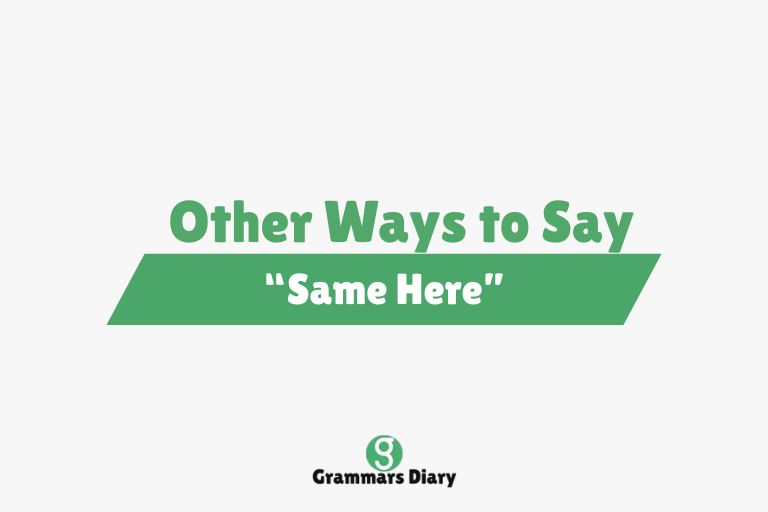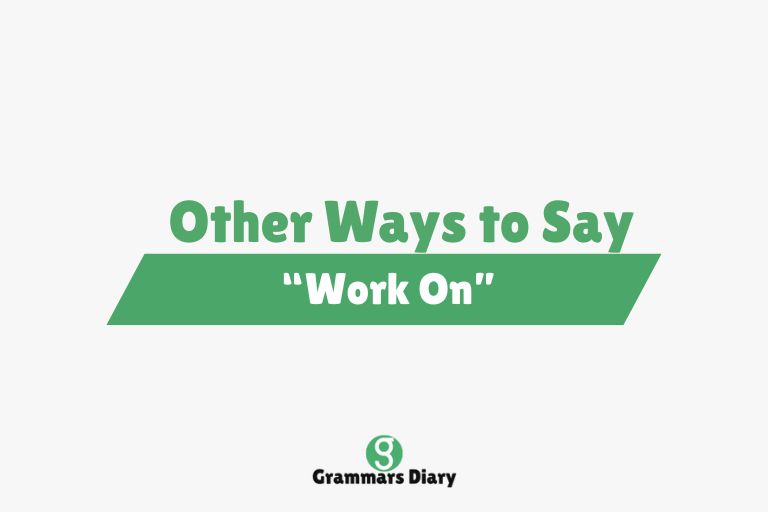22 Other Ways to Say “Well Done”

“Well done” is a familiar phrase we often use to recognize someone’s good performance, praise their efforts, or acknowledge the successful completion of a task. Whether it’s congratulating a child for finishing homework, appreciating a coworker for a job well executed, or simply expressing approval in a casual conversation, this phrase carries a sense of encouragement and affirmation.
However, relying too heavily on one phrase can sometimes make our language feel repetitive or lack emotional nuance. Thankfully, there are many other ways to say “well done” that add variety, specificity, and sometimes even more warmth or enthusiasm to your praise. This article explores 22 effective alternatives, providing clear examples and insights into when and how to use each expression.
Other Ways to Say “Well Done”
1. Excellent Work
Example: “Excellent work on completing the project ahead of schedule.”
Meaning: This phrase highlights the high quality of effort or output, usually in a professional or academic context.
Usage: Appropriate in both formal and informal settings, especially when you want to recognize skill or precision.
2. Great Job
Example: “Great job organizing the files so neatly.”
Meaning: This casual phrase communicates appreciation and approval in a friendly tone.
Usage: Commonly used in everyday conversations, team environments, or between peers.
3. Nicely Done
Example: “Nicely done on handling that tricky situation with patience.”
Meaning: A soft, polite way to show you’re impressed by someone’s effective handling of a task.
Usage: Suitable for general praise, particularly in situations requiring subtlety or diplomacy.
4. Kudos
Example: “Kudos for completing the training module with top marks.”
Meaning: Derived from Greek, this word means praise or acclaim, especially for an achievement.
Usage: Often used in business or tech circles, or when giving public recognition in written form.
5. Hats Off
Example: “Hats off to you for the incredible presentation today.”
Meaning: A metaphorical gesture showing deep respect or admiration.
Usage: Slightly formal and poetic, good for public acknowledgments or high praise moments.
6. You Nailed It
Example: “You really nailed it with that dinner – everyone loved it.”
Meaning: Suggests that someone achieved something perfectly or exceeded expectations.
Usage: Very casual and enthusiastic; best for relaxed or peer-level interactions.
7. Way to Go
Example: “Way to go on getting the promotion – you totally deserve it.”
Meaning: An upbeat and supportive phrase to encourage or praise someone’s success.
Usage: Often used informally among friends, coworkers, or teammates.
8. Good Going
Example: “Good going keeping everything on track during the event.”
Meaning: A positive, easy-going phrase indicating approval of how someone handled a task.
Usage: Useful in casual or mildly professional conversations where relaxed praise is appropriate.
9. Bravo
Example: “Bravo for finishing the semester with straight A’s.”
Meaning: An exclamation of approval or applause, especially after a performance or achievement.
Usage: Slightly formal and theatrical, often used in celebratory or artistic contexts.
10. Impressive
Example: “That was an impressive report – very detailed and clear.”
Meaning: A strong word of approval that emphasizes admiration or recognition of skill.
Usage: Works well in both professional and personal conversations, especially to highlight excellence.
11. Proud of You
Example: “I’m so proud of you for speaking up during the meeting.”
Meaning: This phrase expresses emotional support, connection, and appreciation for someone’s effort or growth.
Usage: Most often used in close personal relationships, such as between family members or mentors and students.
12. That’s the Way
Example: “That’s the way to stay focused under pressure.”
Meaning: An encouraging phrase that reinforces correct or desirable behavior or performance.
Usage: Can be used informally to build confidence or show approval in real-time.
13. Keep It Up
Example: “You’re doing great—keep it up.”
Meaning: A phrase used to encourage someone to maintain their good work or behavior.
Usage: Perfect for motivating someone during an ongoing process or effort, whether in school, work, or everyday tasks.
14. You Did It
Example: “You did it—you passed the test!”
Meaning: A celebratory acknowledgment that someone has completed a difficult or important task.
Usage: Often used in moments of triumph or excitement, especially to boost morale.
15. Fantastic Effort
Example: “That was a fantastic effort on your part to get this done so quickly.”
Meaning: Highlights the determination or hard work put into completing a task, even if the outcome wasn’t perfect.
Usage: Useful in encouraging perseverance and reinforcing a growth mindset.
16. You’ve Outdone Yourself
Example: “You’ve really outdone yourself with this design.”
Meaning: A way of saying someone has exceeded expectations or performed better than usual.
Usage: Suitable for moments when someone surprises others with exceptional output or creativity.
17. Great Work
Example: “Great work on finalizing the proposal so thoroughly.”
Meaning: A solid all-purpose phrase to acknowledge completion, effort, or attention to detail.
Usage: Widely accepted in office or collaborative settings and works well in written praise too.
18. That Was Amazing
Example: “That was amazing—I’ve never seen anything like it.”
Meaning: A highly enthusiastic expression used when something truly impresses or inspires.
Usage: Casual and expressive; ideal for both personal and group celebrations.
19. Outstanding
Example: “Your performance today was outstanding.”
Meaning: Indicates a high level of excellence or remarkable quality.
Usage: More formal than “great job,” often used in academic or professional recognition.
20. Superb
Example: “Your attention to detail is superb.”
Meaning: A refined and elegant synonym for excellent or great.
Usage: Works well in both professional evaluations and elevated casual conversations.
21. You’re Killing It
Example: “You’re killing it with those sales numbers.”
Meaning: A modern, energetic way to say someone is performing extremely well.
Usage: Very informal and motivational, best used among peers or younger audiences.
22. Cheers to You
Example: “Cheers to you for making it all happen on time.”
Meaning: A friendly, celebratory expression of appreciation and recognition.
Usage: Informal and often paired with actual toasts or festive occasions.
When to Use Different “Well Done” Alternatives
In Professional Settings
In the workplace, it’s important to strike a balance between encouragement and professionalism. Phrases like “Excellent work,” “Great work,” “Outstanding,” or “You’ve outdone yourself” help you maintain that tone while also making your appreciation clear and direct. These expressions not only recognize effort but also reinforce high standards in performance reviews, meetings, and emails.
In Everyday Conversations
Daily conversations with friends, family, or classmates offer more room for casual, warm, or enthusiastic language. Using alternatives such as “Way to go,” “You nailed it,” “Keep it up,” or “You did it” helps you build morale and show genuine appreciation in an accessible and friendly way.
In Educational or Family Settings
When praising children, students, or family members, words like “Proud of you,” “Fantastic effort,” or “That’s the way” offer a supportive tone that emphasizes growth and encouragement rather than perfection. These phrases help cultivate confidence while celebrating achievement.
Conclusion
While “well done” is a classic and reliable expression of praise, it’s certainly not the only one available—and it might not always be the best fit depending on your tone, audience, or intent. By expanding your vocabulary with a range of alternatives—from formal and polished to casual and upbeat—you’ll not only sound more dynamic, but also make your recognition feel more thoughtful and sincere.
Whether you’re writing a thank-you email, cheering on a friend, or encouraging a student, these phrases help you find the right words for every occasion.
FAQs
What does “well done” mean?
“Well done” is a phrase used to express approval, praise, or congratulations for a completed task or good performance.
Is “well done” appropriate in formal writing?
Yes, but depending on the tone and formality, you might choose more refined alternatives like “Excellent work” or “Outstanding.”
Can I use these alternatives interchangeably?
In most cases, yes—but always consider the context and tone. Some options are better for professional use, while others suit casual conversations.
Which is the most enthusiastic way to say “well done”?
Expressions like “You nailed it,” “That was amazing,” or “You’re killing it” are high-energy and very enthusiastic.






